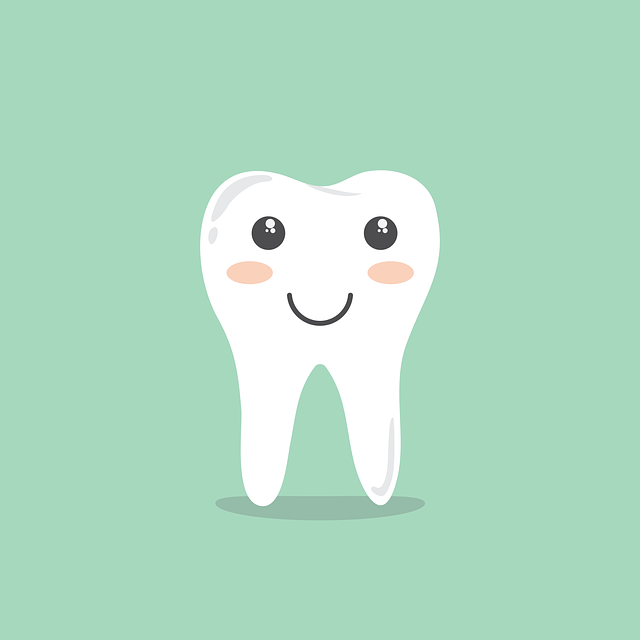Affordable Dental Care: How Much to Get Retainers?
Welcome to the world of affordable dental care! Are you curious about the cost of getting retainers? Look no further, as we delve into this topic with confidence and knowledge. In this article, we will provide you with a clear understanding of how much you can expect to pay for retainers, ensuring you make informed decisions about your oral health without breaking the bank. So, sit back, relax, and let’s explore the world of affordable dental care together!
1. Understanding the Importance of Retainers in Dental Care
Retainers are an essential aspect of dental care that often goes overlooked. They play a crucial role in maintaining the results achieved through orthodontic treatment, helping to keep teeth in their newly aligned positions. By understanding the importance of retainers, you can ensure the longevity of your dental work and protect your investment in a beautiful smile.
Here are some key reasons why retainers are vital in dental care:
- Preservation of alignment: After orthodontic treatment, teeth have a natural tendency to shift back to their original positions. Retainers help prevent this relapse by holding teeth in place, allowing the surrounding tissues to adapt to the new alignment.
- Prevention of bite problems: Retainers also help maintain a proper bite, which is essential for effective chewing, speaking, and overall oral health. By keeping teeth in their correct positions, retainers prevent the development of bite issues that can lead to discomfort and additional dental problems.

2. Factors Affecting the Cost of Retainers: An Overview
Retainers are an essential part of orthodontic treatment, as they help maintain the results achieved by braces or aligners. However, the cost of retainers can vary depending on several factors. Understanding these factors can help you make informed decisions about your orthodontic treatment plan.
1. Type of Retainer: There are different types of retainers available, including removable retainers and fixed retainers. Removable retainers are typically made of clear plastic or acrylic and can be taken out for cleaning or eating. On the other hand, fixed retainers consist of a thin wire that is bonded to the back of the teeth, providing continuous support. The type of retainer you choose can affect the overall cost.
2. Material: The material used to make the retainer can also impact the cost. Removable retainers made of high-quality materials may be more expensive than those made of lower-quality materials. Similarly, fixed retainers made of stainless steel may be more affordable compared to those made of more durable materials like titanium. It is important to discuss the pros and cons of different materials with your orthodontist to determine the most suitable option for you.

3. Exploring Affordable Options for Retainer Treatment
When it comes to retainer treatment, exploring affordable options is essential for many individuals. Fortunately, there are several alternatives available that can help you maintain your oral health without breaking the bank. Here are some affordable options to consider:
- Essix Retainers: These clear, removable retainers are an excellent choice for those looking for an affordable option. They are custom-made to fit your teeth and are virtually invisible when worn. Essix retainers are easy to clean and can be replaced if necessary.
- Hawley Retainers: Another cost-effective choice, Hawley retainers consist of a combination of wires and acrylic. They are adjustable and can be customized to fit your specific dental needs. With proper care and maintenance, Hawley retainers can last for several years.
- Fixed Retainers: If you prefer a more permanent solution, fixed retainers may be the right choice for you. These thin wires are bonded to the back of your teeth and are not visible when you smile. Although they may require additional dental visits, fixed retainers are a long-lasting and affordable option.
Remember, the affordability of these options may vary depending on your location and individual circumstances. It is always best to consult with your orthodontist or dental professional to determine the most suitable and cost-effective retainer treatment for you.

4. Comparing Retainer Costs: What to Expect
When it comes to comparing retainer costs, it’s important to have a clear understanding of what to expect. Retainers can vary significantly depending on the scope and complexity of the project, as well as the experience and expertise of the professionals involved. To help you make an informed decision, here are some key factors to consider:
1. Scope of Work: The extent of the services required will directly impact the retainer cost. A retainer for a small project with minimal deliverables will naturally be lower compared to a larger-scale project with multiple components.
2. Experience and Expertise: The level of expertise and experience of the professionals you hire can also affect the retainer cost. Seasoned professionals with a proven track record may charge a higher retainer, but their expertise can often lead to more efficient and effective outcomes.

5. Finding Affordable Dental Care: Tips and Resources
When it comes to finding affordable dental care, there are several tips and resources that can help you navigate the often expensive world of dental treatments. By following these suggestions, you can ensure that you receive the dental care you need without breaking the bank.
Here are some valuable tips to help you find affordable dental care:
- Research dental insurance options to find a plan that fits your needs and budget. Compare different plans and consider factors such as coverage, deductibles, and premiums.
- Look for dental clinics that offer discounted rates or sliding scale fees based on income. Many dental schools also provide low-cost or free dental services, performed by supervised dental students.
- Consider joining a dental savings plan or discount program. These programs offer reduced rates for dental procedures and can be a cost-effective alternative to traditional insurance.
- Ask your dentist about available payment plans or financing options. Some dental clinics offer flexible payment options to help patients manage the cost of treatment over time.
Remember, affordable dental care is possible with the right knowledge and resources. By exploring these tips and utilizing available resources, you can prioritize your oral health without straining your finances.
6. Budgeting for Retainers: Strategies to Make Dental Care Affordable
When it comes to budgeting for retainers and making dental care more affordable, there are several strategies you can consider. By implementing these strategies, you can ensure that you receive the necessary dental care without breaking the bank:
- Explore dental insurance options: Look into dental insurance plans that cover orthodontic treatments, including retainers. Compare different plans and choose the one that provides the best coverage at an affordable premium.
- Consider a dental savings plan: Dental savings plans are an alternative to insurance and can help you save on a wide range of dental procedures, including retainers. These plans typically require an annual membership fee and offer discounted rates for various treatments.
- Research dental schools: Dental schools often offer reduced-cost or even free dental services as part of their training programs. Contact local dental schools to inquire about the availability of affordable retainer options.
- Ask about payment plans: Some dental offices may offer flexible payment plans that allow you to spread out the cost of retainers over a period of time. Inquire about these options and determine if they align with your budget.
By exploring these strategies and finding the one that best suits your needs, you can ensure that dental care remains affordable while still maintaining the health and alignment of your teeth through the use of retainers.
7. The Value of Investing in Retainers: Long-Term Benefits for Oral Health
Investing in retainers is a wise decision that can provide long-term benefits for your oral health. Retainers are custom-made devices, usually made of plastic or metal, that are used to maintain the alignment of your teeth after orthodontic treatment. Here are some key reasons why investing in retainers is essential for maintaining a healthy smile:
1. Prevents teeth from shifting: Retainers help to prevent your teeth from shifting back to their original positions. After orthodontic treatment, your teeth have a tendency to move, and wearing retainers regularly ensures that they stay in their new, desired positions.
2. Improves bite alignment: Retainers also play a crucial role in improving your bite alignment. They help to align your upper and lower teeth properly, ensuring that your bite functions correctly and reducing the risk of potential dental issues, such as uneven wear or jaw pain.
Frequently Asked Questions
Q: How much do retainers for teeth cost?
A: The cost of retainers for teeth can vary depending on various factors, but on average, you can expect to pay between $100 and $500 per retainer.
Q: What factors can affect the cost of retainers?
A: Several factors can influence the cost of retainers, including the type of retainer prescribed by your orthodontist, your location, the complexity of your case, and any additional procedures required.
Q: What are the different types of retainers available?
A: There are three main types of retainers: Hawley retainers, clear aligner retainers, and fixed retainers. Each type has its own unique features and costs associated with them.
Q: How much does a Hawley retainer cost?
A: The cost of a Hawley retainer typically ranges from $100 to $300. This type of retainer is made of acrylic and wire, and it is removable.
Q: What is the average cost of clear aligner retainers?
A: Clear aligner retainers, such as Invisalign retainers, usually range from $300 to $500. These retainers are virtually invisible and are custom-made using clear plastic trays.
Q: How much does a fixed retainer cost?
A: Fixed retainers, also known as bonded or permanent retainers, can cost between $250 and $500. These retainers are attached to the back of your teeth and are typically made of thin wire.
Q: Are there any additional costs associated with getting retainers?
A: In some cases, additional costs may be incurred if you require adjustments or repairs to your retainers. It is essential to consult with your orthodontist to understand any potential additional expenses.
Q: Does dental insurance cover the cost of retainers?
A: Dental insurance coverage for retainers can vary depending on your specific insurance plan. Some plans may provide partial coverage, while others may not cover retainers at all. It’s important to check with your insurance provider to determine your coverage.
Q: Are there any affordable alternatives to traditional retainers?
A: Yes, there are alternative options available, such as DIY teeth retainers or low-cost generic brands. However, it is crucial to consult with your orthodontist before considering any alternative options to ensure they are safe and effective.
Q: How can I find affordable dental care for retainers?
A: To find affordable dental care for retainers, consider researching different orthodontists in your area, comparing prices, and discussing payment options or payment plans with your chosen provider. Additionally, you may inquire about any available discounts or promotions that could help reduce the overall cost.
Insights and Conclusions
In conclusion, when it comes to affordable dental care and the cost of retainers, there are a few key takeaways to keep in mind. Firstly, the cost of retainers can vary depending on several factors such as the type of retainer, location, and the complexity of your dental needs. Secondly, it is important to consult with your dentist or orthodontist to determine the most suitable retainer option for you. They can provide you with accurate cost estimates and recommend the best course of action. Lastly, exploring insurance coverage or flexible payment plans can help make retainers more affordable for those on a budget. Remember, taking care of your dental health is crucial, and with the right information and guidance, you can find a solution that is both cost-effective and beneficial for your oral well-being.






